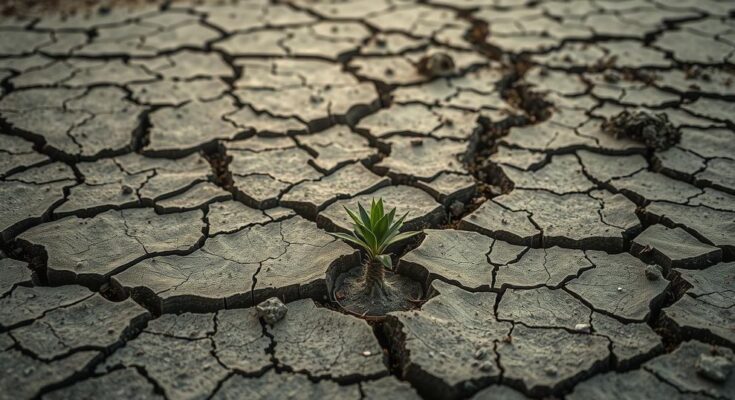A Transparency International report reveals that corruption in sub-Saharan Africa critically undermines climate action efforts by diverting crucial funding. The Corruption Perceptions Index highlights the urgent need for strong anti-corruption measures to safeguard climate finance. Some nations have made progress, but systemic corruption persists, threatening successful implementation of climate initiatives across the region.
A report by Transparency International, published on February 11, 2025, reveals that systemic corruption in sub-Saharan Africa significantly undermines climate action initiatives. The report, titled “2024 Corruption Perceptions Index: Corruption is Playing a Devastating Role in the Climate Crisis,” emphasizes how weak anti-corruption measures obstruct efforts to combat climate change effectively, highlighting the urgent need for substantial climate finance in the region.
African countries depend heavily on climate finance to implement their nationally determined contributions (NDC) submitted to the United Nations. Nonetheless, issues such as misappropriation, theft, and misallocation of funds markedly threaten these climate initiatives. The analysis indicates that corruption remains a pervasive global challenge that complicates meaningful climate action across the continent.
According to the Corruption Perceptions Index (CPI), which assesses 180 countries based on public sector corruption, the most successful sub-Saharan nations include Seychelles, Cabo Verde, Botswana, and Rwanda. The report documents advances such as Ivory Coast’s 10-point increase since 2019 and Tanzania’s 10-point rise since 2014. However, it also notes significant declines, with Lesotho falling 12 points and Eswatini dropping 16 points since 2014.
Countries extremely affected by climate change, including Equatorial Guinea, Eritrea, Somalia, and South Sudan, often rank among the most corrupt. In Somalia, for instance, climate change exacerbates agricultural decline and contributes to a decade-long conflict. The authors of the report indicate that systemic corruption hampers governance and diverts essential climate funding designated for reducing emissions and enhancing resilience.
Various nations face heightened environmental crises exacerbated by corruption. Libya encounters extreme weather conditions, while inadequate adaptation strategies amplify the climate impact. The report cites Hurricane Daniel, which devastated Derna in September 2023, linking its consequences to corrupt practices and poor infrastructure management. In Eswatini, unauthorized government spending undermines anti-corruption measures amid worsening climate challenges.
As the first country to enter a just energy transition partnership, South Africa faces corruption allegations hindering climate efforts. Allegations concerning the Eskom utility, where monthly thefts amount to over a billion rand, raise doubts about the government’s commitment to addressing climate-related corruption effectively. The report illustrates a strong correlation between levels of corruption and ineffective environmental policies.
For instance, Zambia’s corrupt networks involving high-ranking officials enabled illegal Mukula wood trade, generating an estimated $7.5 million annually in bribes. Moreover, environmental activists in highly corrupt nations encounter severe risks, including violence and intimidation. The report details incidents where environmental defenders were murdered in various African countries, underscoring the dangers activists face in their advocacy efforts.
Maira Martini, chief executive of Transparency International, emphasizes the necessity for global action to eliminate corruption that hampers climate initiatives. She urges that “Governments and multilateral organisations must embed anti-corruption measures in climate efforts to protect funding and rebuild trust.”
Despite significant challenges, some African nations have made progress combating corruption. Seychelles has notably prosecuted high-profile corruption cases and enhanced inter-agency cooperation, successfully exiting the EU blacklist. Additionally, Tanzania’s rise in the CPI reflects stronger anti-corruption enforcement, demonstrated by the swift removal of corrupt officials and the creation of specialized courts for economic crimes.
At COP29, wealthier nations committed $300 billion annually by 2035 to assist vulnerable countries in combating climate change. However, the report stresses that ensuring these funds reach their intended recipients necessitates robust anti-corruption frameworks to protect both environmental and community interests.
The report by Transparency International thoroughly highlights how corruption undermines climate action efforts in sub-Saharan Africa. The study indicates a clear need for stronger anti-corruption measures to safeguard climate funding and facilitate effective implementation of climate initiatives. While some advancements have been made, systemic corruption remains a critical barrier that must be addressed globally for meaningful climate action to occur.
Original Source: www.downtoearth.org.in




